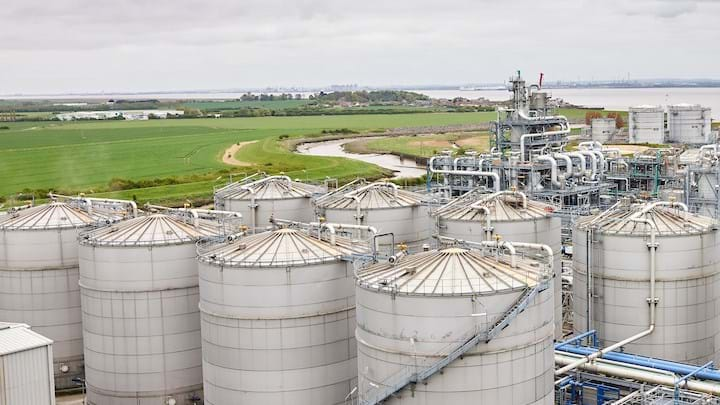Hull industry figures back UK bioethanol plant’s call for government support

INDUSTRY figures in Hull, UK have issued a joint statement backing Vivergo Fuels’ pleas for government support, as possible closure of the country’s largest bioethanol plant draws nearer.
Vivergo’s parent company Associated British Foods (ABF) opened a 45-day redundancy consultation period for its 160 staff members 20 days ago, following repeated warnings from the company that UK bioethanol manufacturing will become commercially unsustainable once the US-UK trade deal comes into force. The deal, agreed in May, will remove the existing 19% tariffs on US bioethanol imported into the UK up to a threshold of 1.4bn L – far more than the 820m L produced each year at the country’s two main plants, with Teesside-based Ensus also facing closure.
Vivergo has warned that without government intervention, British bioethanol producers will be unable to compete with cheap American imports which are heavily subsidised by the US government. The company suspended purchases of wheat feedstock, largely sourced from British farms, in early June, and currently plans to cease all production by 13 September if it does not receive commitment of government support by the end of the consultation period.
Industry unity
The statement, issued today following a gathering at the Saltend Chemicals Park in Hull last week, was signed by Vivergo managing director Ben Hackett along with seven other senior industry figures based at Saltend, including the site manager of Ineos’ acetic acid plant Rob Fergie. The statement stressed that bioethanol producers are not demanding an “infinite subsidy” but rather “targeted action” to help grow UK demand for bioethanol.
The primary use of bioethanol in the UK is as an additive in petrol to lower exhaust emissions, currently forming 10% of standard grade unleaded petrol, or “E10”. Hackett believes increasing this to 15% will both reduce emissions further and help rescue the bioethanol industry.
The statement warned that support was needed to “prevent a key pillar of the Humber’s green industrial future from collapsing”, adding that the closure of Vivergo would drive up costs for other Saltend businesses.
Vivergo also wants regulations of sustainable aviation fuel (SAF) to change, which could become a key market for bioethanol. Current regulations are that SAF must be made from non-food biomass such as agricultural waste, deeming jet fuel produced from bioethanol made from “first generation” crops such as wheat ineligible to be classed as SAF. Vivergo has already signed a memorandum of understanding with Saltend-based green hydrogen maker Meld Energy to produce SAF, but the joint statement, signed by Meld CEO Chris Smith, warned this is “dependent on Vivergo’s survival”.
Calls to make it easier for bioethanol producers to enter the SAF market were made in parliament last week during a subcommittee hearing on the Sustainable Aviation Fuel Bill. Sophia Haywood, director of UK and EU government affairs at SAF manufacturer LanzaJet, told the committee she believed “SAF is a great opportunity for the challenge that the bioethanol sector is currently facing.”
Maintaining Saltend’s integrated model
Today’s joint statement said: “We are asking for swift, targeted action that gives domestic bioethanol a fair chance to compete and keeps Saltend’s integrated model intact…The government has an opportunity to show that it backs the UK’s chemicals, future fuels and bioeconomy sectors. We stand ready to work with ministers to secure Vivergo’s future and unlock the full potential of the Saltend cluster for the region and for the country.”
Last month, the government began negotiating possible options to support the industry and has contracted external consultants to evaluate business plans submitted by Vivergo and Ensus.
A government spokesperson said: “We recognise this is a concerning time for workers and their families which is why we entered into negotiations with the company on potential financial support last month.
“We will continue to take proactive steps to address the long-standing challenges the company faces and remain committed to working closely with them throughout this period to present a plan for a way forward that protects supply chains, jobs and livelihoods.”
Recent Editions
Catch up on the latest news, views and jobs from The Chemical Engineer. Below are the four latest issues. View a wider selection of the archive from within the Magazine section of this site.




